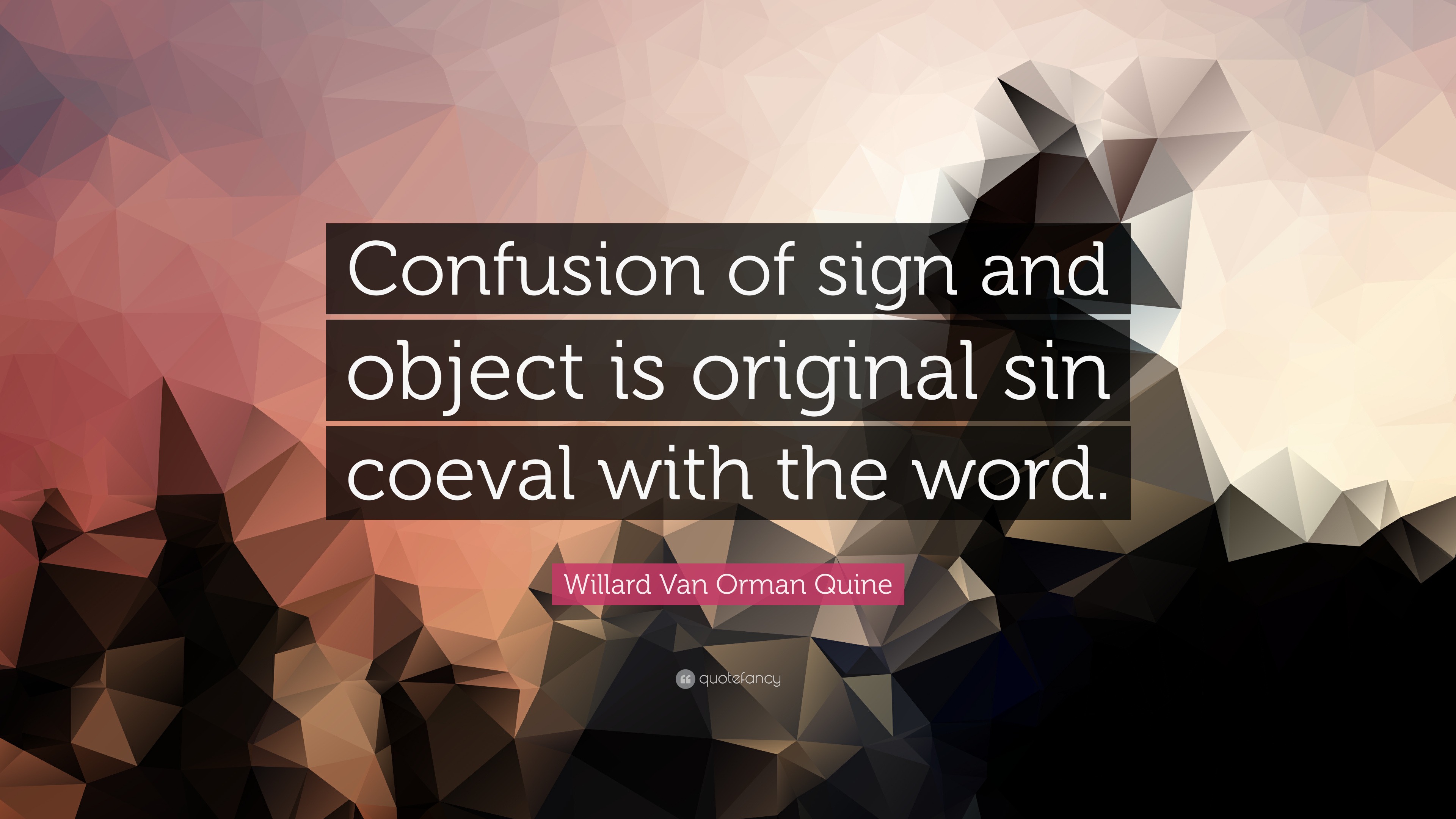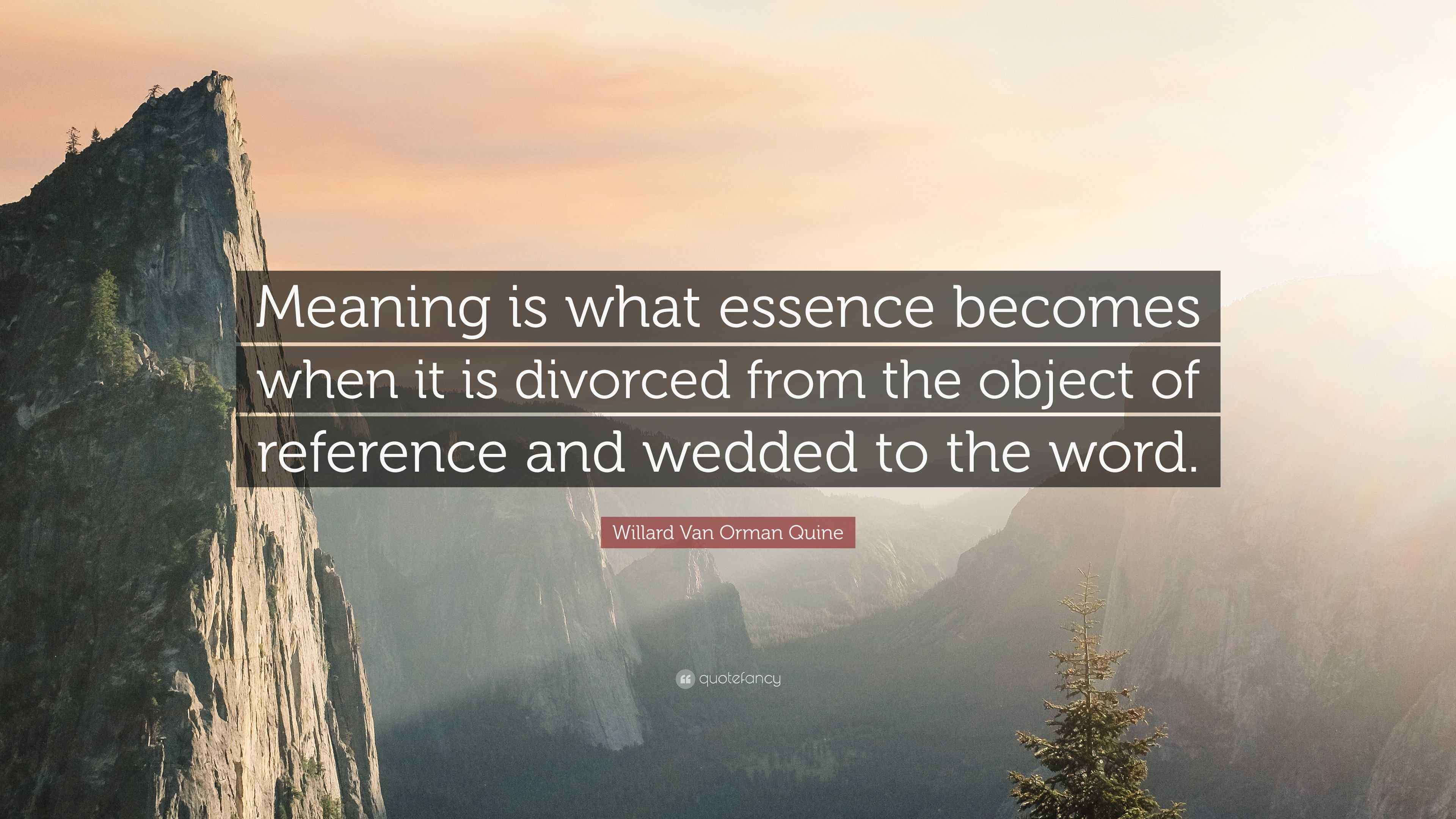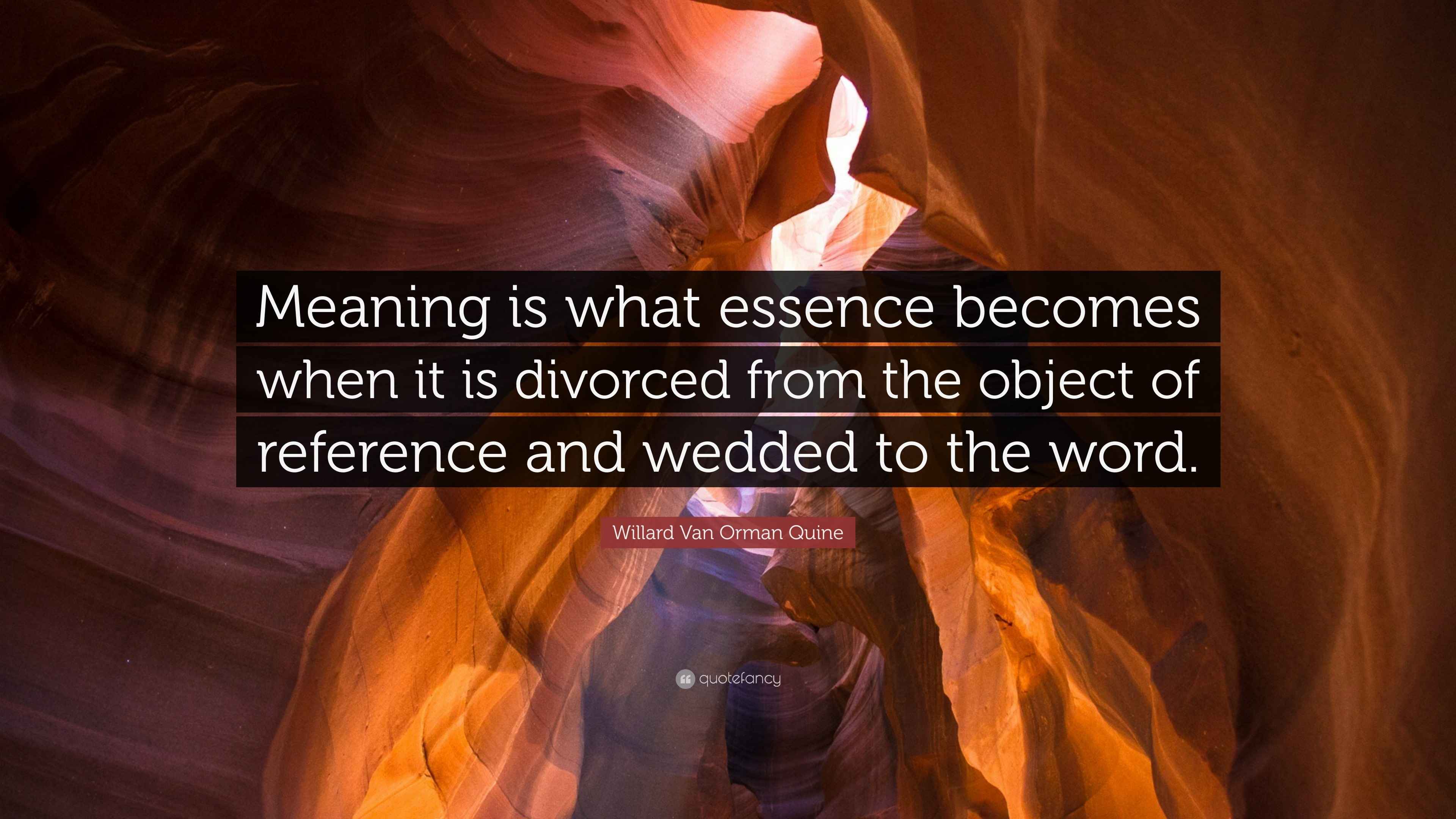Quine word and object chapter 3 – Prepare to embark on an intellectual adventure as we delve into Quine’s Word and Object Chapter 3, a seminal work that challenges the very foundations of language, logic, and our understanding of reality. Quine’s provocative ideas will ignite your curiosity and challenge your assumptions, leaving you with a profound appreciation for the complexities of human thought.
Quine’s exploration of the relationship between words and objects forces us to confront the nature of meaning and reference, while his critique of the analytic-synthetic distinction invites us to rethink the boundaries of knowledge. Get ready to grapple with fundamental questions about the nature of language and the world it describes.
Quine’s Paradox and the Word “Quine”

Quine’s paradox, formulated by the renowned philosopher W.V.O. Quine, is a self-referential conundrum that has significant implications for the foundations of logic and language. The paradox arises when we consider the statement “Quine is not a Quine.” If this statement is true, then Quine is not a Quine. However, if this statement is false, then Quine is a Quine. This paradox highlights the complexities of self-reference and raises questions about the limits of language and logic.
The Concept of Self-Reference
Self-reference occurs when a statement or expression refers to itself. In Quine’s paradox, the statement “Quine is not a Quine” refers to the word “Quine” itself. This creates a loop of reference that leads to the paradox. The statement cannot be both true and false, yet it appears to be both depending on how it is interpreted.
Implications for Logic and Language
Quine’s paradox challenges the traditional foundations of logic and language. It raises questions about the validity of self-referential statements and the limits of formal systems. The paradox also highlights the importance of context and interpretation in language, as the meaning of a statement can change depending on the context in which it is used.
Quine’s Object and Its Relation to the Word “Quine”

In his philosophical exploration, Quine challenged traditional conceptions of objects and introduced a novel notion of an “object” that departed from the conventional understanding. According to Quine, an object is not a singular, independent entity but rather a theoretical construct that is dependent on the conceptual framework within which it is conceived. This conceptual framework, known as the “ontology,” is a system of interrelated concepts that define the nature of reality and the objects within it.
The relationship between Quine’s object and the word “Quine” is intricate and thought-provoking. Quine argues that the word “Quine” does not refer to a specific, concrete object but rather to a collection of properties or characteristics that are associated with the concept of “Quine.” These properties include the philosopher’s name, his philosophical ideas, and his contributions to the field. In this sense, the word “Quine” functions as a linguistic representation of a complex and multifaceted concept, rather than a direct reference to a singular entity.
Ontological Implications
Quine’s notion of an object has significant ontological implications. It challenges the traditional view that objects are independent, self-contained entities that exist independently of our conceptual frameworks. Instead, Quine suggests that objects are dependent on the ontologies we construct to make sense of the world. This implies that the nature of reality is not fixed and immutable but rather is shaped by the conceptual frameworks we employ.
Epistemological Implications
Quine’s object also has profound epistemological implications. It raises questions about the nature of knowledge and the limits of our understanding. If objects are not independent entities but rather are dependent on our conceptual frameworks, then our knowledge of the world is necessarily limited by the conceptual frameworks we employ. This suggests that our understanding of reality is always partial and incomplete, as it is always mediated through the lens of our own conceptual frameworks.
Quine’s Word and Object in Chapter 3

In Chapter 3 of his influential work “Word and Object,” W.V.O. Quine presents a comprehensive critique of traditional philosophical distinctions, including the analytic-synthetic distinction. He argues for a “naturalized” epistemology, rooted in scientific methods and empirical observations.
Quine’s Critique of the Analytic-Synthetic Distinction, Quine word and object chapter 3
Quine argues that the traditional distinction between analytic and synthetic statements is untenable. Analytic statements are said to be true by virtue of their meaning, while synthetic statements are true or false based on empirical evidence. Quine contends that this distinction is arbitrary and that there is no clear criterion for distinguishing between the two.
Quine illustrates this point with the example of the statement “All bachelors are unmarried.” This statement appears to be analytic, as it seems to be true by virtue of the meaning of the terms “bachelor” and “unmarried.” However, Quine argues that the statement is actually synthetic because it relies on the empirical fact that all bachelors are male. This fact could conceivably change in the future, rendering the statement false.
Contemporary Interpretations and Extensions of Quine’s Word and Object

Quine’s seminal work “Word and Object” has sparked a plethora of contemporary interpretations and extensions, significantly influencing fields such as philosophy of language, philosophy of science, and cognitive science.
Influence on Philosophy of Language
Quine’s critique of the analytic-synthetic distinction and his emphasis on the indeterminacy of translation have profoundly impacted the philosophy of language. His ideas have led to the development of new theories of meaning, such as Davidson’s theory of radical interpretation and Putnam’s theory of natural kinds.
Influence on Philosophy of Science
Quine’s naturalized epistemology and his rejection of the traditional distinction between philosophy and science have had a major impact on the philosophy of science. His work has contributed to the development of new approaches to scientific realism, such as the Duhem-Quine thesis and the underdetermination of theory by evidence.
Influence on Cognitive Science
Quine’s ideas have also been influential in cognitive science, particularly in the study of language acquisition. His work on the poverty of the stimulus has led to the development of new theories of how children learn language.
Ongoing Debates and Controversies
Despite the significant influence of Quine’s work, there are ongoing debates and controversies surrounding it. These include debates over the validity of his critique of the analytic-synthetic distinction, the extent to which his naturalized epistemology can account for scientific knowledge, and the implications of his work for the study of language acquisition.
Final Wrap-Up: Quine Word And Object Chapter 3

Our journey through Quine’s Word and Object Chapter 3 concludes with a deeper understanding of the intricate relationship between language and reality. Quine’s provocative ideas have left an indelible mark on philosophy, inspiring generations of scholars to question the very nature of knowledge and meaning. As we emerge from this intellectual odyssey, we carry with us a newfound appreciation for the power and limitations of language, and a profound sense of the interconnectedness of words, objects, and the world we inhabit.
FAQs
What is Quine’s paradox?
Quine’s paradox highlights the self-referential nature of language and the difficulty of defining truth within a formal system.
How does Quine define an “object”?
Quine’s notion of an “object” is broader than traditional conceptions, encompassing both physical entities and abstract concepts.
What is Quine’s critique of the analytic-synthetic distinction?
Quine argues that the distinction between analytic and synthetic statements is not clear-cut, and that all knowledge is ultimately empirical.
